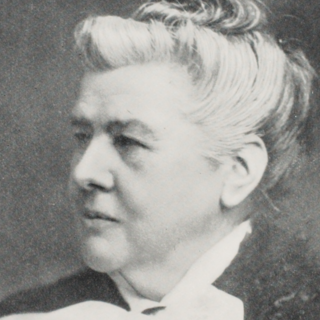 W
WKhrystyna Danylivna Alchevska, née Zhuravlyova (1841–1920) was a Ukrainian teacher and a prominent activist for national education in Imperial Russia. She created a methodical training system which was implemented in many schools of Russian Empire. In 1862, she organized the first free girls' school in Ukraine. In 1889, she was elected vice-president of the International League of Education in Paris.
 W
WEnriqueta Compte y Riqué was a Spanish-born Uruguayan teacher. She was the founder of the first kindergarten in South America in 1892, and famous for having contributed decisively to preschool teaching in Uruguay and Latin America.
 W
WGloria Giner de los Ríos García was a Spanish teacher at the Escuela Normal Superior de Maestras and the Institución Libre de Enseñanza. The author of innovative manuals dedicated to the teaching of history and geography, she, together with Leonor Serrano Pablo, developed the educational "recipe" that they called "enthusiastic observation". They also worked to change the androcentric canon of geographical studies to include women.
 W
WMaría Dolores de Gortázar Serantes (1872-1936) was a Spanish writer, journalist, education activist, feminist militant and political propagandist. In the 1910-1920s she enjoyed some popularity as a novelist; currently her literary contribution is considered of very little value. Over decades she contributed to some 40 periodicals and launched a short-lived feminine review on her own. Briefly engaged in setting up schools for the middle- and low-class girls, later she remained active advocating the presence of females in public life, especially in culture and education. Politically she sided with the Carlists, for decades contributing to their periodicals. All her activities were flavored with zealous Catholicism.
 W
WElizabeth Harrison was an American educator. She was the founder and first president of what is today National Louis University. Harrison was a pioneer in creating professional standards for early childhood teachers and in promoting early childhood education.
 W
WHrafnhildur Hanna Ragnarsdóttir is professor emerita in Developmental and Educational Science at the University of Iceland. Her research is concerned with long-term language development and its relation to cognition, social-emotional development and literacy. Her primary research focus has been on the development of vocabulary, grammar, and narratives in early childhood and the first school years and on later language development as it appears in oral vs/written text construction and in narratives vs/expository texts from middle grades through adolescence and into adulthood.
 W
WBertha Kipfmüller was described by an admiring journalist as a "small person with a powerful voice and an iron will". Her work as a German school teacher made her a women's rights activist and a pioneering figure in respect of women's education. She was, in addition, a committed pacifist during a period remembered for intensifying nationalist-populism in Europe, a linguistic genius and a passionate believer in life-long learning.
 W
WOkhee Lee is an American education scholar and professor of childhood education.
 W
WRosa Morison was a British linguist and educationist. She offered her services for free to College Hall, London and became their first Lady Superintendent of Women Students. She worked there until her death, outliving her lifelong partner Eleanor Grove. The University of London named a hall of residence after the two of them in 2012.
 W
WSofia Charlotta Wilkens née Thomée was a Swedish pedagogue. She is counted as a pioneer in the education of students with Intellectual disability, as well as deaf and mute students. She founded the Deaf and Mute Institute in Karlskrona, a combined orphanage, training school and working home for pupils with physical and intellectual disabilities, and was its manager from 1859-1877.